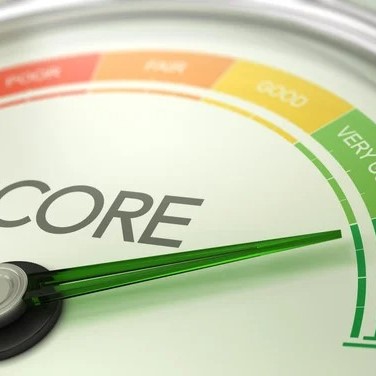Navigating loan settlement, especially when it was a necessary step to escape or mitigate Bank harassment, can feel like reaching the end of a long, challenging road fraught with unfair pressure. You’ve addressed your financial burden, and while the immediate relief is significant, a common concern lingers: what happens to my credit history now, particularly considering the unethical treatment you endured? Specifically, can I rebuild my credit score after a Loan Settlement Credit Score Impact that might have been influenced by the bank’s actions? The answer, thankfully, is yes. While a Debt Settlement Credit Rating will likely take a temporary hit, it’s not a permanent black mark, and rebuilding is possible, perhaps with an added layer of determination to overcome the negative consequences of the harassment. At Bank harassment, we believe in empowering you to not only resolve your past debts and address unfair bank practices but also to build a brighter financial future, and that includes understanding Credit Improvement After Debt Settlement in your specific context.
Let’s be honest: choosing Loan Settlement, especially when it was a direct or indirect consequence of Bank harassment, does have an impact on your creditworthiness. When you settle a debt for less than the full amount owed, it’s reported to credit bureaus. This “settled” status, while resolving the immediate debt and potentially ending the harassment, signals to future lenders that the original obligation wasn’t entirely fulfilled. Consequently, your Debt Settlement Credit Rating will likely see a decrease, and a CIBIL check will reflect this. The keyword here is “temporary.” While the negative mark can remain on your report for several years, the good news is that you absolutely can embark on the journey of Credit Improvement After Debt Settlement, perhaps with the added motivation of demonstrating your resilience after facing unfair treatment.
Understanding the Initial Impact (Potentially Exacerbated by Bank Harassment): Settle Loan Affect Credit
It’s important to acknowledge the immediate reality. Choosing Debt Settlement, especially if it felt like the only way to stop Bank harassment, will likely cause your credit score to drop. The extent of this impact depends on various factors, including your pre-settlement score, the amount of debt settled, and your overall credit history. Lenders view a “settled” account differently from a “closed” account (where the full amount was repaid). A “settled” status suggests a higher risk to potential future lenders. This is why understanding the Loan Settlement Credit Score Impact, and how the stress and financial strain of Bank harassment might have contributed to it, is crucial before looking forward.
The Path to Recovery (and Reclaiming Your Financial Standing After Bank Harassment): Credit Improvement After Debt Settlement
While the initial impact might feel discouraging, the road to Credit Improvement After Debt Settlement is definitely navigable, perhaps with an added layer of determination to rebuild after enduring Bank harassment. It requires patience, discipline, consistent positive financial behavior, and a conscious effort to choose ethical lenders in the future. Here’s a roadmap to help you rebuild your creditworthiness:
- Understand Your Current Standing (and Document Any Lasting Impact of Harassment): Obtain your credit report (including your CIBIL check) to understand the specific impact of the Loan Settlement on your credit history. Identify any other negative factors that might be affecting your score. Also, consider documenting any lingering financial or emotional impact of the Bank harassment that might be relevant if you need to explain your situation to future lenders.
- Consistent and Timely Payments (Your Declaration of Financial Responsibility): This is the cornerstone of Credit Improvement After Debt Settlement. Ensure you pay all your future bills on time, every time. This includes credit card bills, utility bills, and any other loan repayments. A positive payment history is the most significant factor influencing your credit score, demonstrating your commitment to responsible financial behavior after the ordeal of Bank harassment.
- Responsible Credit Utilization (Building Trust with Ethical Institutions): If you have a credit card (or obtain one, as discussed below), use it responsibly. Keep your credit utilization ratio (the amount of credit you’re using compared to your total credit limit) low – ideally below 30%. High credit utilization can negatively impact your credit rating. Prioritize building relationships with financial institutions known for their ethical and fair practices.
- Consider a Secured Credit Card (A Stepping Stone to Rebuilding Trust): If you’re finding it difficult to get a regular credit card after a Loan Settlement, a secured credit card can be a great tool for Credit Improvement After Debt Settlement. This requires a security deposit, which acts as your credit limit. By making timely payments on a secured card, you can demonstrate responsible credit behavior and gradually rebuild your credit history
- Clear Any Other Outstanding Dues (Reducing Overall Financial Stress): If you have any other outstanding debts, prioritize paying them off. Reducing your overall debt burden will positively influence your credit rating and contribute to your overall financial recovery after the Bank harassment.
- Maintain a Healthy Credit Mix (Demonstrating Responsible Management): As you rebuild your credit, aim for a healthy mix of credit types, such as credit cards and installment loans (if needed and manageable), ideally from institutions you trust. This shows lenders you can handle different types of credit responsibly.
- Be Patient (Healing Takes Time): Credit Improvement After Debt Settlement is not an overnight process. It takes time and consistent positive financial habits to rebuild trust with lenders and improve your credit score, especially after the potential financial damage caused by Bank harassment. Don’t get discouraged by slow progress; focus on maintaining good financial behavior and seeking out ethical financial partners.
- Monitor Your Credit Report Regularly (And Watch for Any Lasting Negative Impact of Harassment): Keep an eye on your CIBIL check and other credit reports to track your progress and ensure accuracy. Dispute any errors you find. Also, be vigilant for any lingering negative reporting that might be unfairly linked to the period of Bank harassment.
Bank harassment: Your Partner in Rebuilding Your Financial Future and Seeking Justice:
At Bank harassment, we understand that Loan Settlement, especially when it’s a step towards escaping unfair bank practices, is often a fresh start. While the Loan Settlement Credit Score Impact is a factor to consider, it’s not an insurmountable obstacle, and it’s certainly not the only aspect of your financial recovery. We are here to support you not only in resolving your debts but also in providing guidance and resources for Credit Improvement After Debt Settlement, and importantly, in helping you understand your rights and potential avenues for addressing the Bank harassment you have experienced. By understanding how a Debt Settlement Credit Rating is affected and by implementing responsible financial strategies with ethical lenders, you can absolutely rebuild your credit score and achieve your future financial goals, while also seeking justice for any unfair treatment you endured. Contact Us today to learn more about how we can help you navigate the path to financial recovery and fight against Bank harassment.



